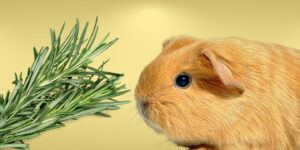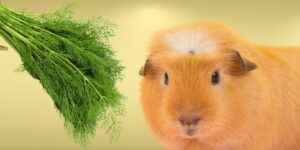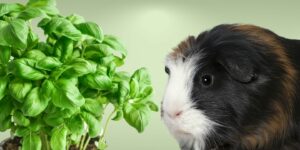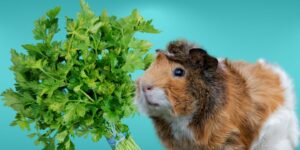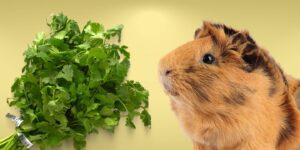Can Guinea pigs eat grass? Yes, they can! In fact, grass is an important part of a guinea pig's diet and should be included as part of their regular meals. Grass provides guinea pigs with essential nutrients and helps maintain a healthy digestive system. As a general rule of thumb, guinea pigs should be given a small handful of fresh grass daily, or about 1-2 cups.
Benefits of Grass for Guinea Pigs
Grass provides various health benefits for guinea pigs, including:
Fiber
Grass is a rich source of fiber, which is essential for maintaining a healthy digestive system in guinea pigs. Fiber helps prevent gastrointestinal issues, such as bloating, constipation, and diarrhea.
Vitamin C
Guinea pigs, unlike other animals, cannot produce their own vitamin C, making it essential to provide vitamin C through their diet. Grass is a natural source of vitamin C, which helps promote a strong immune system and overall health.
Dental Health
Chewing on grass helps guinea pigs maintain healthy teeth. The process of chewing and grinding grass helps wear down their constantly growing teeth and prevents overgrowth, which can lead to dental issues and pain.
Growing Your Own Grass for Guinea Pigs
To ensure that your guinea pig gets the freshest and safest grass, you may consider growing your own at home. Here's how you can do it:
Choosing the Right Seed
Opt for organic, untreated grass seeds that are safe for guinea pigs, such as Timothy grass or Orchard grass.
Planting the Grass
Plant the grass seeds in a pot with well-drained soil, and place it in a sunny location. Water the seeds regularly, keeping the soil moist but not soggy.
Harvesting the Grass
Once the grass has reached a height of around 3-4 inches, you can begin to harvest it for your guinea pig. Use clean scissors to cut the grass, and wash it thoroughly before feeding it to your pet.
Alternatives to Grass for Guinea Pigs
If you don't have access to fresh grass, you can offer your guinea pig alternatives that provide similar health benefits:
Hay
Hay, such as Timothy hay or Orchard hay, is an essential part of a guinea pig's diet and provides the same benefits as grass. Make sure to provide your guinea pig with an unlimited supply of fresh hay daily.
Leafy Greens
Leafy greens, such as kale, spinach, and romaine lettuce, can also be a good source of fiber and nutrients for guinea pigs. However, feed these in moderation, as excessive amounts can lead to health issues.
Vitamin C-Rich Vegetables
Offering guinea pigs vegetables rich in vitamin C, such as bell peppers, broccoli, and parsley, can help supplement their vitamin C intake.
Precautions When Feeding Grass to Guinea Pigs
Before introducing grass into your guinea pig's diet, keep in mind the following precautions:
Gradual Introduction
Introduce grass gradually to your guinea pig's diet to avoid upsetting their digestive system. Start with small amounts and gradually increase the quantity over time.
Monitoring for Allergies
Although rare, some guinea pigs may be allergic to certain types of grass. Keep an eye on your pet for any signs of allergies, such as itching, sneezing, or discomfort, and consult with a veterinarian if any issues arise.
Proper Storage
Store any leftover grass in a cool, dry place to prevent mold growth. Discard any grass that appears moldy or has an off smell, as it can be harmful to your guinea pig.
Final Thoughts
Grass is a beneficial and essential part of a guinea pig's diet, providing necessary nutrients and promoting overall health. By following the guidelines and precautions mentioned in this article, you can ensure that your guinea pig enjoys the benefits of grass while staying happy and healthy.



